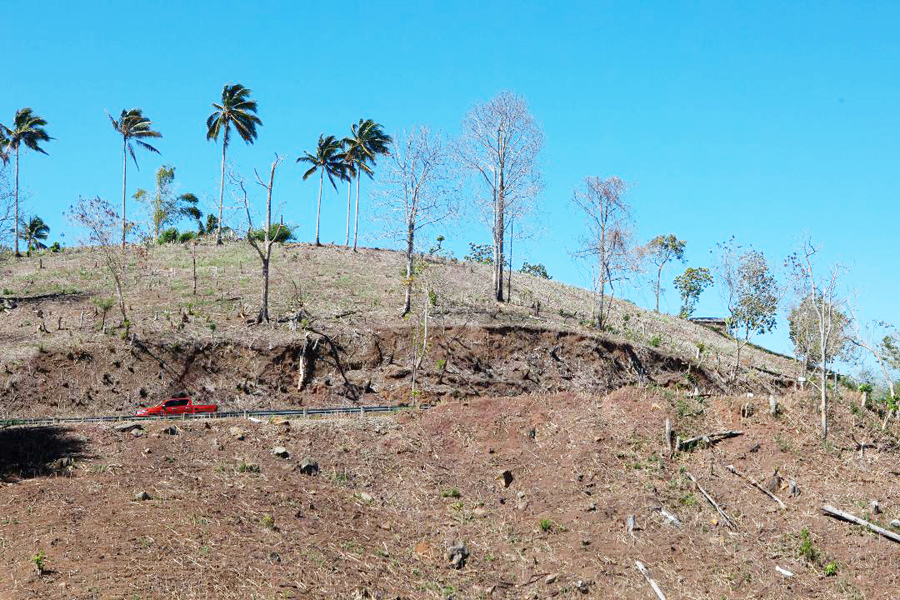DAVAO CITY – Bangsamoro Autonomous Region in Muslim Mindanao (BARMM) interim Chief Minister Ahod Ebrahim has placed the entire region under a state of calamity due to the impact of the prolonged dry spell as a result of the El Niño phenomenon.

A PARCHED cornfield in North Upi, Maguindanao del Norte. (Keith Bacongco)
Ebrahim signed Office of the Chief Minister (OCM) Proclamation No. 002, Series of 2024, on April 29, declaring a state of calamity.
In a statement, the Bangsamoro government said that the declaration will aid the affected communities and expedite the significant interventions of the interim government, including response operations and recovery efforts.
“This declaration will effectively control the prices of the basic goods and commodities for the affected areas and afford the BARMM and its LGUs ample latitude to utilize and appropriate funds for rescue, recovery, relief, and rehabilitation efforts of, and to continue to provide basic services to, affected populations, in accordance with the law,” Ebrahim said.
The Philippine Atmospheric, Geophysical, and Astronomical Services Administration (PAGASA) climate outlook said Maguindanao del Norte and Maguindanao del Sur are among provinces in the country with below normal rainfall this month.
The State weather bureau noted that the provinces of Maguindanao were among the seven provinces in Mindanao with dry spell conditions. An area under a dry spell condition has experienced two consecutive months of below normal rainfall condition or 21 to 60 percent average rainfall reduction.
Last month, the BARMM Ministry of Agriculture, Fisheries, and Agrarian Reform (MAFAR) initially reported that 19,731 hectares of corn and 5,472 hectares of rice in the region have been destroyed due to extreme heat.
Almost 700 hectares of vegetable farms, 45 hectares of fruit trees, and 56 hectares of root crops were also destroyed, MAFAR added.
The Bangsamoro government urged the concerned BARMM ministries, offices, and agencies (MOAs) to exert the necessary measures to address the ongoing calamity.
“All ministries and other government agencies concerned are hereby directed to implement and execute medical assistance, relief, and rehabilitation work in accordance with pertinent operational plans and directives.”
The BARMM is composed of the provinces of Basilan, Maguindanao del Norte, Maguindanao del Sur, Sulu, and Tawi-Tawi.
With a population of at 4.4 million as of 2020, the region has consistently registered the highest poverty incidence among families at 34.8 percent in the first semester of 2023, according to the Philippine Statistics Authority (PSA).